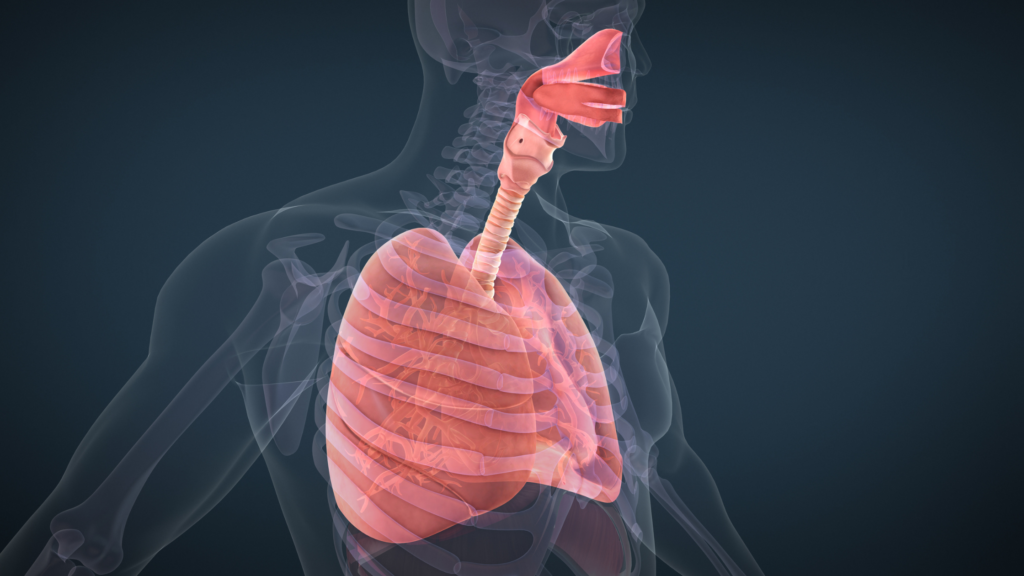The oral microbiome is a complex community of bacteria, fungi, viruses, and other microorganisms residing in the mouth, which plays a pivotal role in maintaining overall health. Beyond its influence on teeth and gums, the balance of these microbes significantly impacts systemic health. This intricate ecosystem performs essential functions, such as defending against harmful pathogens, aiding digestion, and regulating immune responses. However, when the oral microbiome becomes imbalanced—a condition known as dysbiosis—it can contribute to a range of systemic health issues.
Recent research has illuminated the profound connections between oral health and systemic conditions, including cardiovascular disease, diabetes, respiratory infections, and cognitive disorders like Alzheimer’s disease. These findings underscore that oral health is not an isolated concern but a vital component of overall well-being.
In this article, we will delve into how the oral microbiome interacts with the body, explore systemic conditions linked to oral health, and examine the mechanisms driving these connections. By understanding these relationships, we can make informed decisions to protect both our oral and systemic health. This exploration highlights the importance of maintaining a healthy oral microbiome as part of a comprehensive approach to wellness.
Overview of the Oral Microbiome and Its Role in Health
The oral microbiome is a dynamic and diverse community of microorganisms that reside in the mouth, including bacteria, fungi, viruses, and archaea. With over 700 known species, this ecosystem plays a vital role in maintaining oral and systemic health. These microorganisms live on various surfaces in the mouth, such as teeth, gums, tongue, and cheeks, each hosting unique microbial populations.
What is the Oral Microbiome?
- The oral microbiome is a critical part of the body’s overall microbiome network, which also includes the gut, skin, and other areas.
- A healthy oral microbiome is balanced, with beneficial microbes outcompeting harmful ones. This balance is essential for oral health and protecting against diseases.
Protective Functions of the Oral Microbiome
- The oral microbiome defends against pathogens by producing antimicrobial substances and creating an environment that prevents harmful microbes from thriving.
- It also supports digestion by breaking down starches and fats in the mouth, initiating the digestive process before food enters the stomach.
- Saliva works in tandem with the microbiome, helping wash away food particles and providing nutrients that support beneficial bacteria.
How the Oral Microbiome Interacts with the Body
- Microbial migration from the mouth to other parts of the body occurs through the bloodstream, saliva, and digestive system. This process allows oral bacteria to influence systemic health.
- A balanced oral microbiome can help regulate immune responses and reduce systemic inflammation, while an imbalanced one (dysbiosis) may contribute to conditions such as cardiovascular disease, diabetes, and even cognitive decline.
By maintaining a healthy oral microbiome, you support a critical component of your body’s defense system, reinforcing the connection between oral and systemic health.
Systemic Conditions Linked to Oral Microbiome Imbalances
Imbalances in the oral microbiome, or dysbiosis, can have far-reaching effects on systemic health. Research has uncovered connections between the oral microbiome and various conditions, emphasizing the importance of maintaining a healthy microbial balance in the mouth.
Cardiovascular Diseases
- How Oral Pathogens Contribute to Arterial Inflammation and Atherosclerosis
Oral pathogens like Porphyromonas gingivalis and Streptococcus mutans can enter the bloodstream through inflamed gums, triggering an immune response. These bacteria can adhere to arterial walls, promoting the formation of plaques and contributing to atherosclerosis.
Chronic gum disease also leads to persistent low-grade inflammation, which is a risk factor for heart disease.

- Key Studies Linking Gum Disease and Heart Health
A study published in the Journal of the American Heart Association found that individuals with periodontitis had a significantly higher risk of cardiovascular disease. Another meta-analysis highlighted the correlation between periodontal disease and conditions such as heart attacks and strokes.
These findings underscore the need for good oral hygiene as part of a heart-healthy lifestyle.
Diabetes
- The Bidirectional Relationship Between Diabetes and Periodontal Disease
Diabetes and periodontal disease exacerbate each other. High blood sugar levels in people with diabetes create an environment conducive to bacterial growth, worsening gum disease.
In turn, the inflammation caused by periodontal disease can impair the body’s ability to regulate blood sugar levels, creating a vicious cycle.
- Inflammation and Poor Glycemic Control
Gum inflammation releases pro-inflammatory cytokines, which increase insulin resistance, making blood sugar control more challenging for individuals with diabetes.
Addressing periodontal health has been shown to improve glycemic control, highlighting the interplay between these conditions.
Cognitive Disorders
- Role of Oral Bacteria in Neuroinflammation
Oral pathogens like Porphyromonas gingivalis have been detected in the brains of individuals with Alzheimer’s disease. These bacteria produce toxins that may contribute to neuroinflammation and the formation of amyloid plaques, which are hallmarks of Alzheimer’s.
- Studies Linking Oral Microbiome Imbalances to Cognitive Decline
A study in the journal Science Advances found that gingipains, toxic enzymes produced by P. gingivalis, were present in brain tissue of Alzheimer’s patients. Another study in the Journal of Alzheimer’s Disease showed that treating gum disease reduced the progression of cognitive decline in older adults.
These findings suggest that maintaining oral health may help protect against neurodegenerative diseases.
Respiratory Diseases

- How Aspiration of Oral Pathogens Causes Respiratory Infections
Oral bacteria such as Streptococcus pneumoniae can be aspirated into the lungs, leading to respiratory infections like pneumonia. This is especially common in elderly individuals and those with compromised immune systems.
Poor oral hygiene increases the risk of respiratory infections, emphasizing the need for regular brushing and flossing.
Adverse Pregnancy Outcomes
- The Link Between Poor Oral Health and Complications
Research has associated gum disease with adverse pregnancy outcomes, including preterm birth and low birth weight. Bacteria from the mouth can enter the bloodstream and reach the placenta, triggering inflammatory responses.
- How Inflammation Affects Pregnancy
Inflammation caused by oral bacteria can interfere with normal fetal development. A study in the Journal of Obstetrics and Gynecology found that pregnant individuals with untreated periodontal disease were more likely to experience complications, highlighting the importance of oral care during pregnancy.
Autoimmune Disorders
- Evidence Linking Oral Microbiome Imbalances to Autoimmune Diseases
The oral microbiome is implicated in conditions like rheumatoid arthritis (RA). Oral pathogens such as Aggregatibacter actinomycetemcomitans can trigger autoimmune responses, leading to joint inflammation.
- Mechanisms of Influence
Bacterial toxins from the oral cavity may contribute to systemic inflammation, exacerbating autoimmune diseases. Addressing oral health may help reduce symptoms in individuals with RA and other autoimmune conditions.
Cancer
- The Role of Fusobacterium nucleatum
This oral bacterium has been linked to colorectal cancer. F. nucleatum can travel from the mouth to the colon, promoting tumor growth and inflammation.
- Other Cancer Connections
Poor oral health has also been associated with an increased risk of pancreatic and esophageal cancers. Maintaining a healthy oral microbiome may reduce cancer risks by limiting systemic inflammation and bacterial migration.
Gut Health and Inflammatory Bowel Disease (IBD)
- The Oral-Gut Connection
Imbalances in the oral microbiome can influence gut health. Oral pathogens can translocate to the gut, disrupting the gut microbiome and contributing to conditions like Crohn’s disease and ulcerative colitis.
- Impact on Gut Inflammation
Studies have shown that individuals with IBD often have increased levels of oral bacteria in their gut microbiota. These bacteria exacerbate intestinal inflammation, demonstrating the link between oral and gut health.
Mechanisms Behind Oral-Systemic Connections
Understanding how oral health influences the rest of the body requires exploring the mechanisms by which oral bacteria and infections affect systemic health. Here are three key pathways that connect the oral microbiome to overall well-being:
Microbial Migration
How Oral Bacteria Enter the Bloodstream
- Oral bacteria can enter the bloodstream through inflamed or damaged gum tissue, a process known as bacteremia. This is common in individuals with gum disease, where harmful bacteria like Porphyromonas gingivalis can access the circulatory system.
- Once in the bloodstream, these bacteria travel to other parts of the body, where they can colonize tissues and contribute to systemic conditions such as atherosclerosis or joint inflammation.
Impact of Migration
- Research shows that certain oral bacteria adhere to arterial walls, promoting plaque formation and increasing the risk of cardiovascular disease.
- These bacteria can also cross the blood-brain barrier, potentially contributing to neuroinflammation in conditions like Alzheimer’s disease.
Inflammatory Pathways
Triggering Systemic Inflammation
- Oral infections, particularly periodontitis, release inflammatory molecules such as cytokines into the bloodstream. These molecules amplify inflammation throughout the body.
- Chronic gum inflammation may result in persistent low-grade systemic inflammation, which has been linked to conditions like diabetes, rheumatoid arthritis, and heart disease.
Immune Response Disruption
- Dysbiosis in the oral microbiome can over-activate the immune system, leading to an imbalance between pro-inflammatory and anti-inflammatory responses. This imbalance increases susceptibility to autoimmune conditions and chronic diseases.
Nutritional and Metabolic Pathways

Nutrient Deficiencies
- Poor oral health can impair nutrient absorption by limiting the ability to chew and digest food effectively. Missing nutrients like calcium, vitamin D, and magnesium, essential for bone and gum health, weaken the body’s defenses.
- Periodontal disease has also been linked to deficiencies in antioxidants, which are vital for reducing oxidative stress and inflammation.
Metabolic Changes
- Inflammatory markers from oral infections can disrupt metabolic processes, increasing insulin resistance and exacerbating diabetes.
- Oral dysbiosis may also influence gut microbiota composition, which plays a critical role in nutrient metabolism and systemic health.
These interconnected mechanisms illustrate how the oral microbiome is deeply integrated with systemic health. By addressing oral health issues early, you can reduce the risk of microbial migration, systemic inflammation, and nutritional imbalances, ultimately protecting your overall well-being.
Practical Steps to Support the Oral Microbiome for Better Systemic Health
Taking proactive steps to maintain a healthy oral microbiome is essential not only for oral health but also for protecting systemic well-being. Here are five practical strategies:
Practice Consistent Oral Hygiene
- Daily Habits: Brush your teeth twice daily using a fluoride toothpaste, and floss daily to remove plaque and food particles from hard-to-reach areas.
- Regular Checkups: Schedule regular dental checkups and cleanings to monitor your oral health and prevent gum disease, which can disrupt the oral microbiome and lead to systemic issues.
Adopt a Balanced Diet
- Focus on Whole Foods: Incorporate whole, plant-based foods like leafy greens, fruits, nuts, and legumes, which provide nutrients and fiber to nourish beneficial bacteria in both the oral and gut microbiomes.
- Limit Acidic Foods: Reduce the consumption of acidic foods and drinks, which can weaken enamel and disrupt the microbial balance.
Limit Sugar and Processed Foods
- Minimize Sugar: Reducing sugar intake deprives harmful bacteria of their primary food source, helping to minimize acid production and prevent cavities.
- Avoid Processed Foods: These often contain refined carbohydrates that promote dysbiosis and increase the risk of inflammation.
Manage Stress

- Impact of Stress: Chronic stress disrupts microbial balance and increases inflammation, which can exacerbate oral and systemic health issues.
- Stress-Reduction Techniques: Engage in stress management practices like meditation, exercise, or yoga to promote a healthy microbiome and immune response.
Stay Hydrated
- Support Saliva Production: Drink plenty of water to maintain saliva production, which helps wash away harmful bacteria and provides nutrients to beneficial microbes.
- Avoid Dehydrating Beverages: Limit sugary or caffeinated drinks, which can contribute to dry mouth and bacterial overgrowth.
By adopting these practical habits, you can support a thriving oral microbiome that contributes to better oral health and systemic wellness. Small, consistent efforts make a significant impact on your overall health.
The Future of Oral-Systemic Health Research
Advances in oral-systemic health research are shedding light on the intricate connections between the oral microbiome and overall well-being. As our understanding of this field deepens, innovative approaches are emerging to prevent and treat systemic diseases linked to oral health.
Emerging Technologies in Oral Health
- Microbiome-Targeted Therapies: Future treatments aim to selectively target harmful bacteria while preserving beneficial microbes. Techniques like antimicrobial peptides, precision probiotics, and bacterial transplants are being developed to restore microbial balance.
- Probiotics for Oral Health: Probiotic supplements designed specifically for the oral microbiome are gaining attention for their potential to reduce harmful bacteria and promote gum health, offering a natural way to manage dysbiosis.
Integrative Health Approaches
- Holistic Treatment: There is a growing recognition of the importance of treating oral and systemic health as interconnected. Dentists and physicians are beginning to collaborate, focusing on shared factors like inflammation and nutrient deficiencies.
Lifestyle Medicine: Integrative practices encourage patients to adopt healthy habits, such as balanced diets and stress management, to promote microbial health and reduce systemic disease risks.

The Role of Personalized Medicine
- Individual Microbiome Profiles: Advances in genetic and microbiome sequencing are enabling healthcare providers to analyze a person’s unique oral microbiome.
- Customized Interventions: By tailoring treatments to an individual’s microbiome, healthcare could become more effective, addressing specific imbalances that contribute to systemic conditions.
The future of oral-systemic health research promises exciting breakthroughs, emphasizing prevention and personalized care as cornerstones of a healthier population.
Conclusion
The oral microbiome is a vital link between oral and systemic health, influencing conditions such as cardiovascular disease, diabetes, and cognitive decline. This intricate ecosystem plays a central role in regulating immune responses, reducing inflammation, and protecting against harmful pathogens.
By prioritizing oral care through consistent hygiene, a balanced diet, and stress management, you can support not only your oral health but also your overall well-being. The growing body of research reinforces that maintaining a healthy oral microbiome is an essential part of a holistic health strategy.
Explore more in this series to uncover actionable insights into the microbiome’s role in promoting lifelong health. Together, we can take steps toward a healthier, more balanced future.

